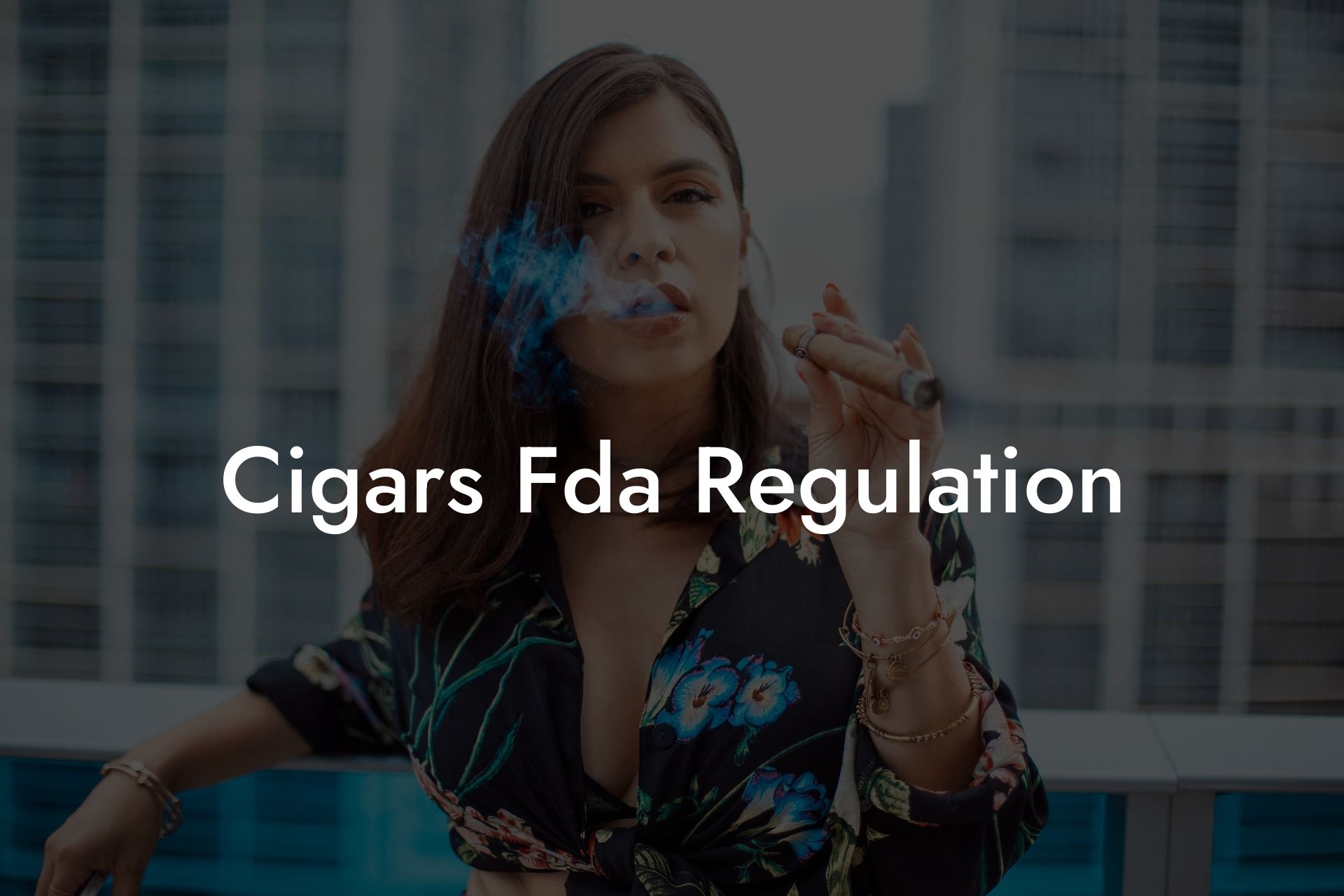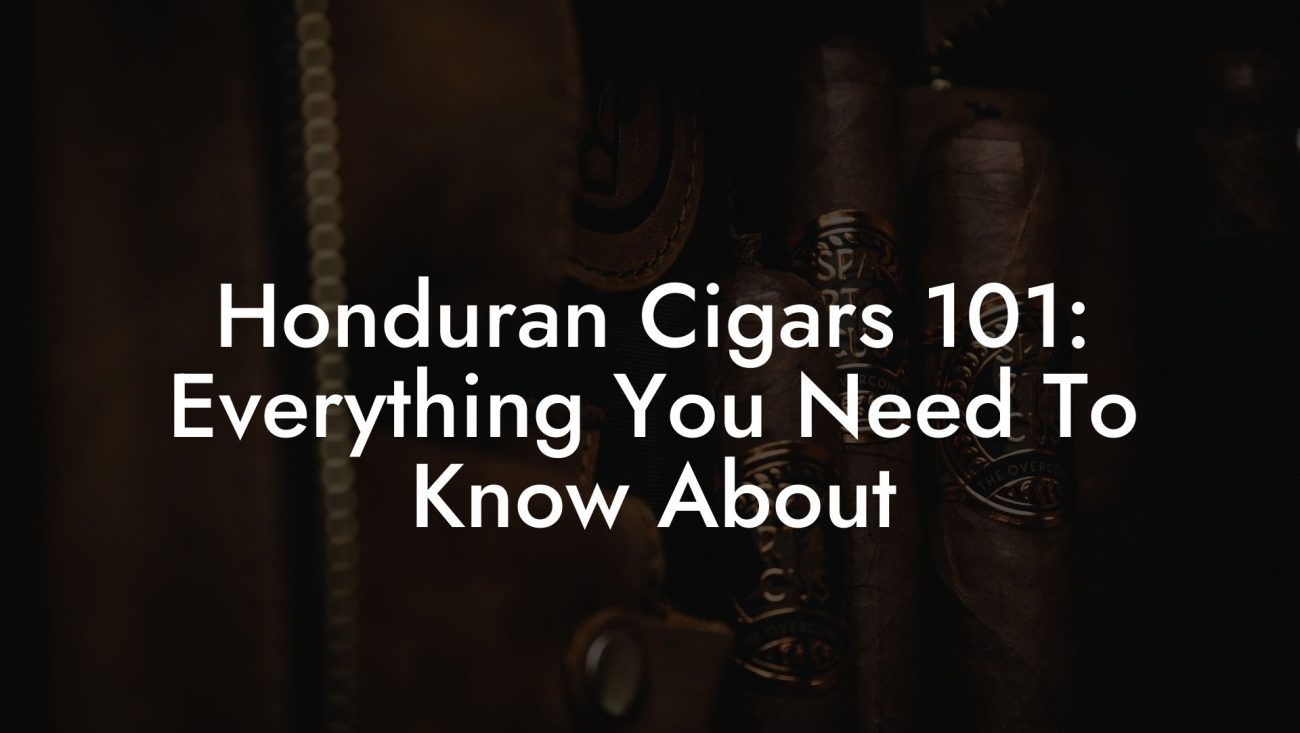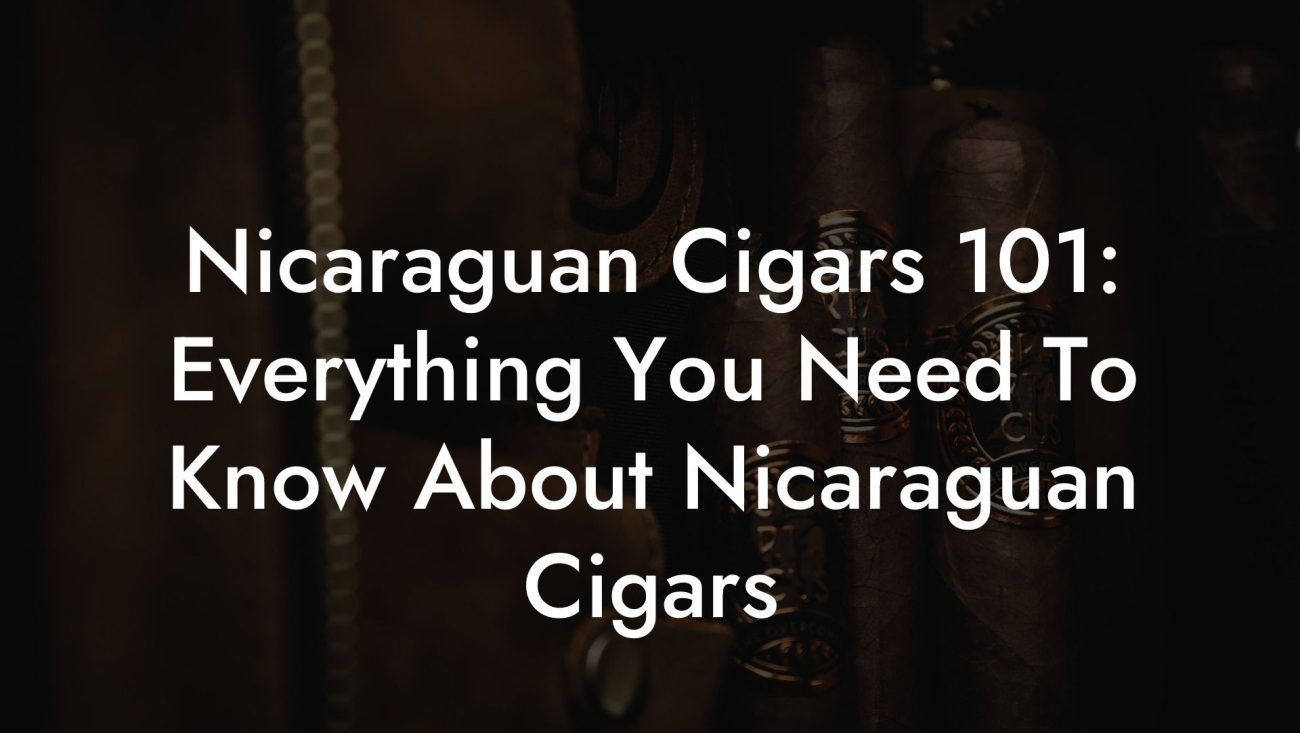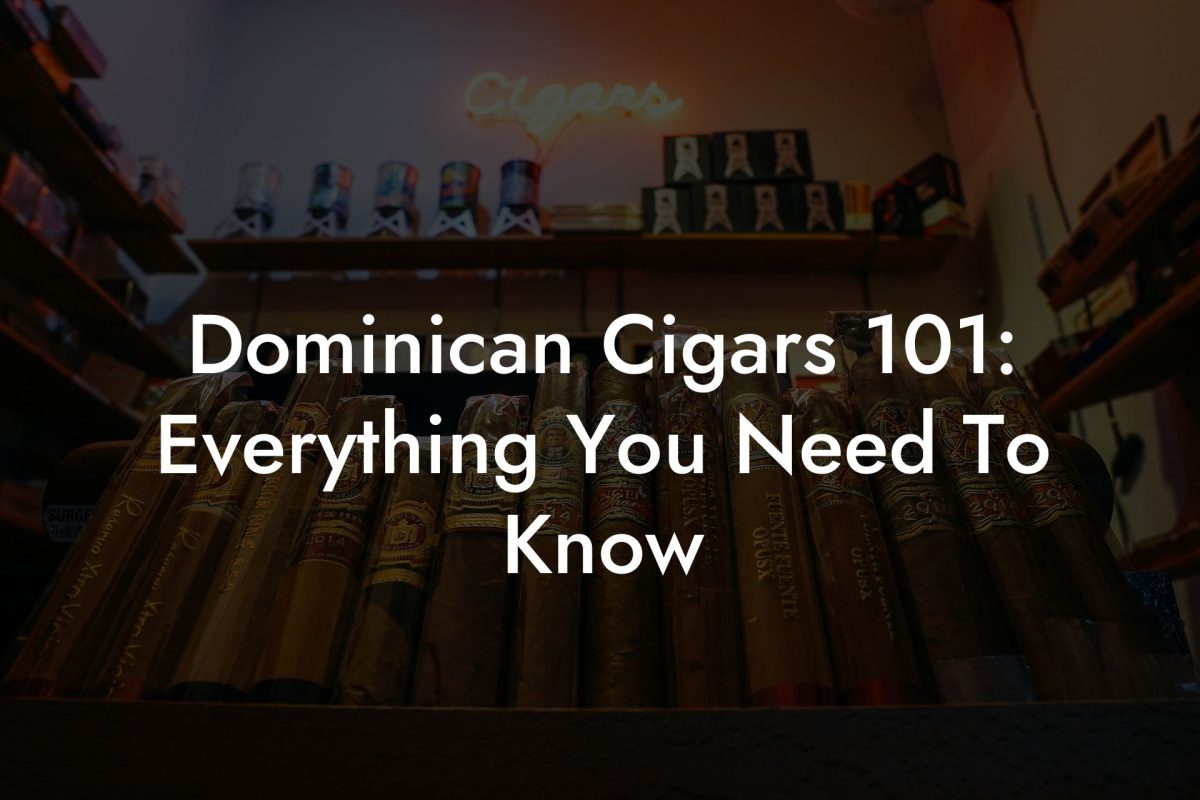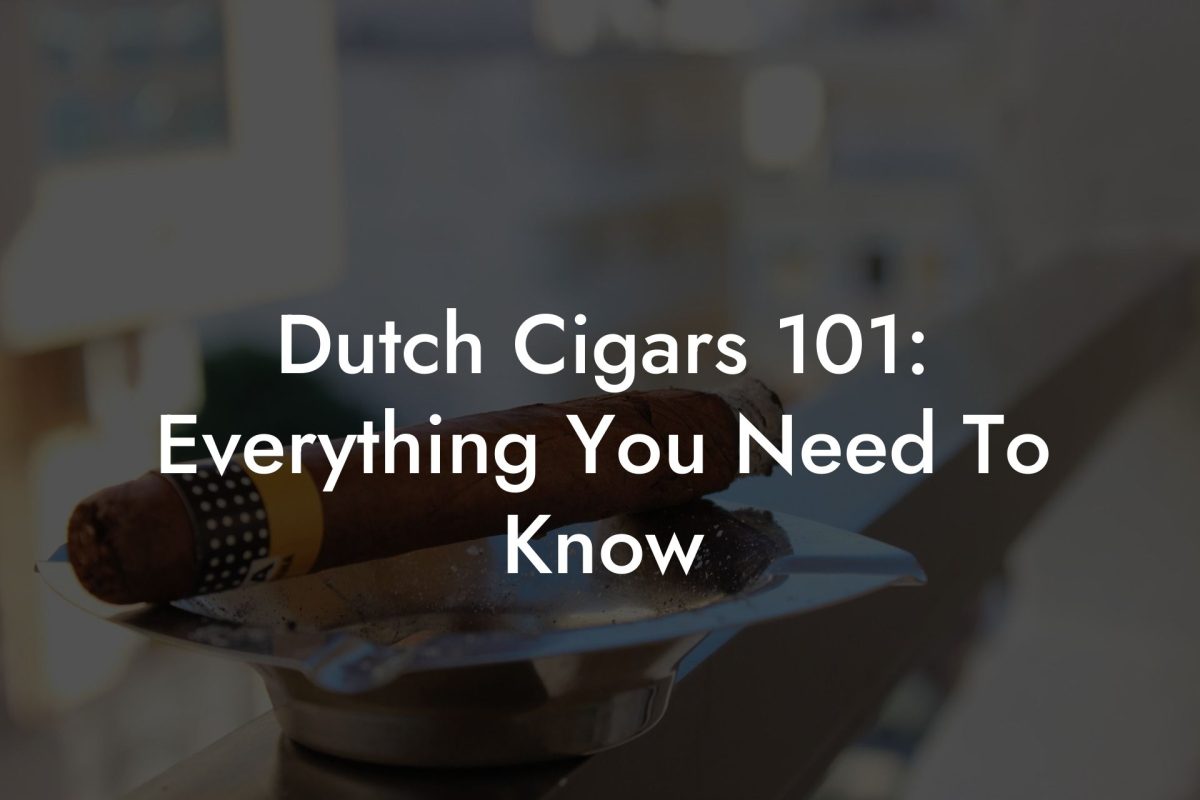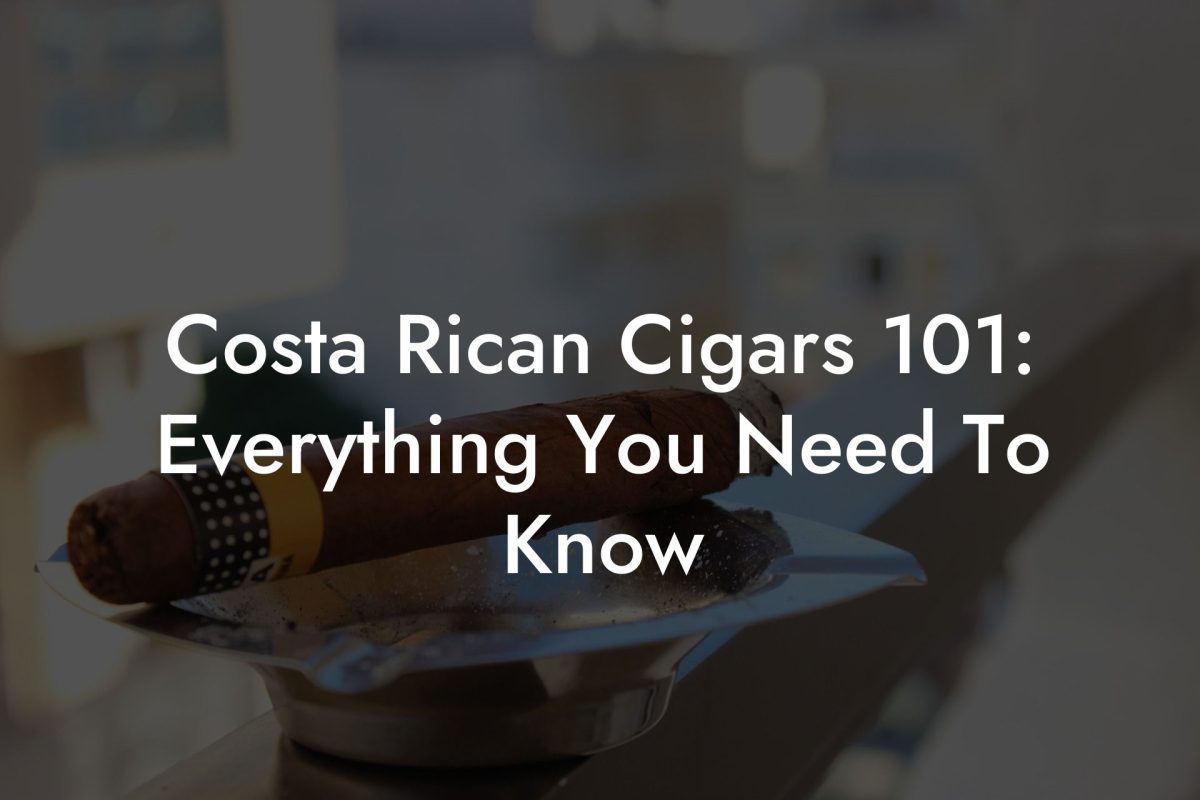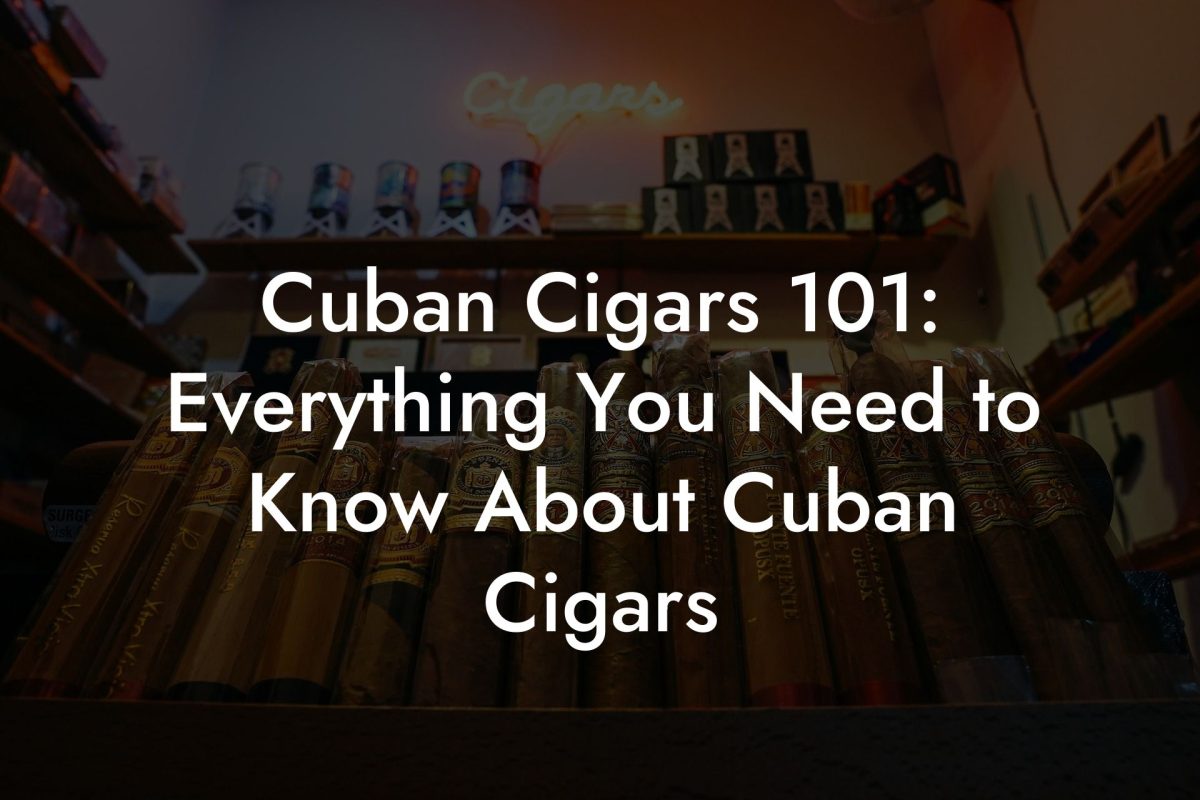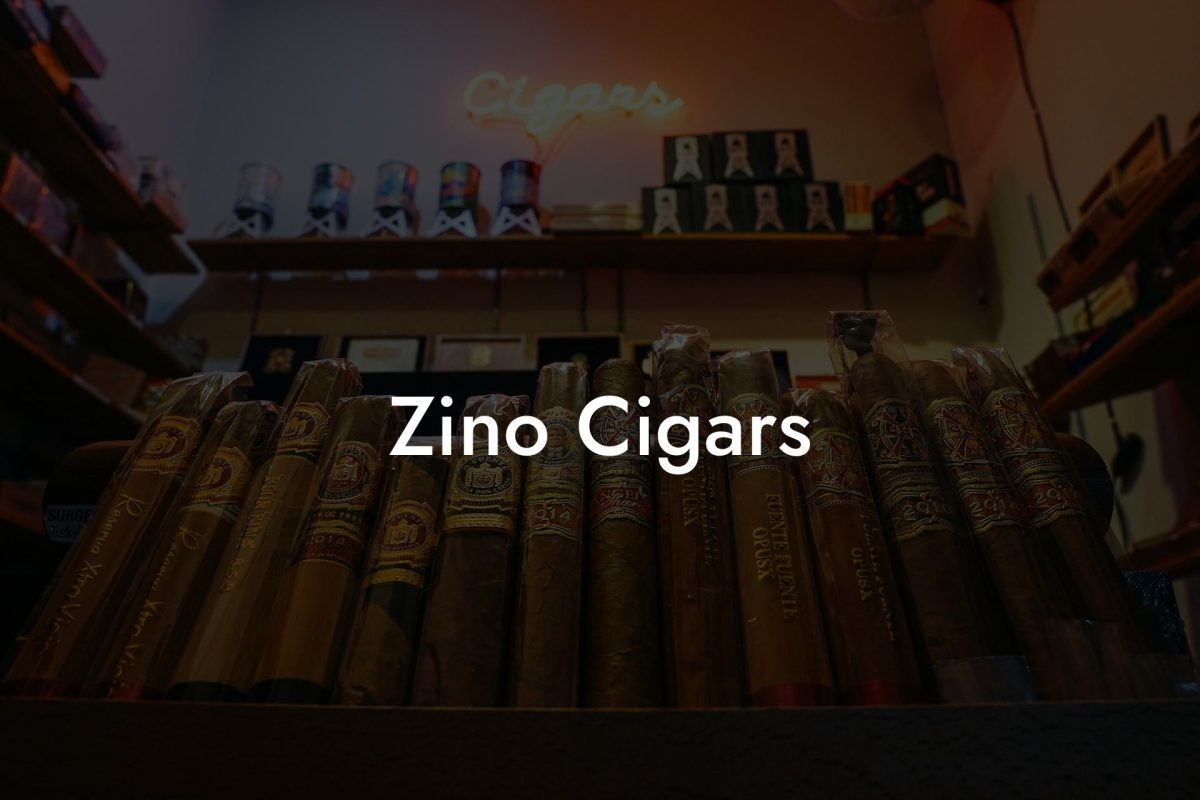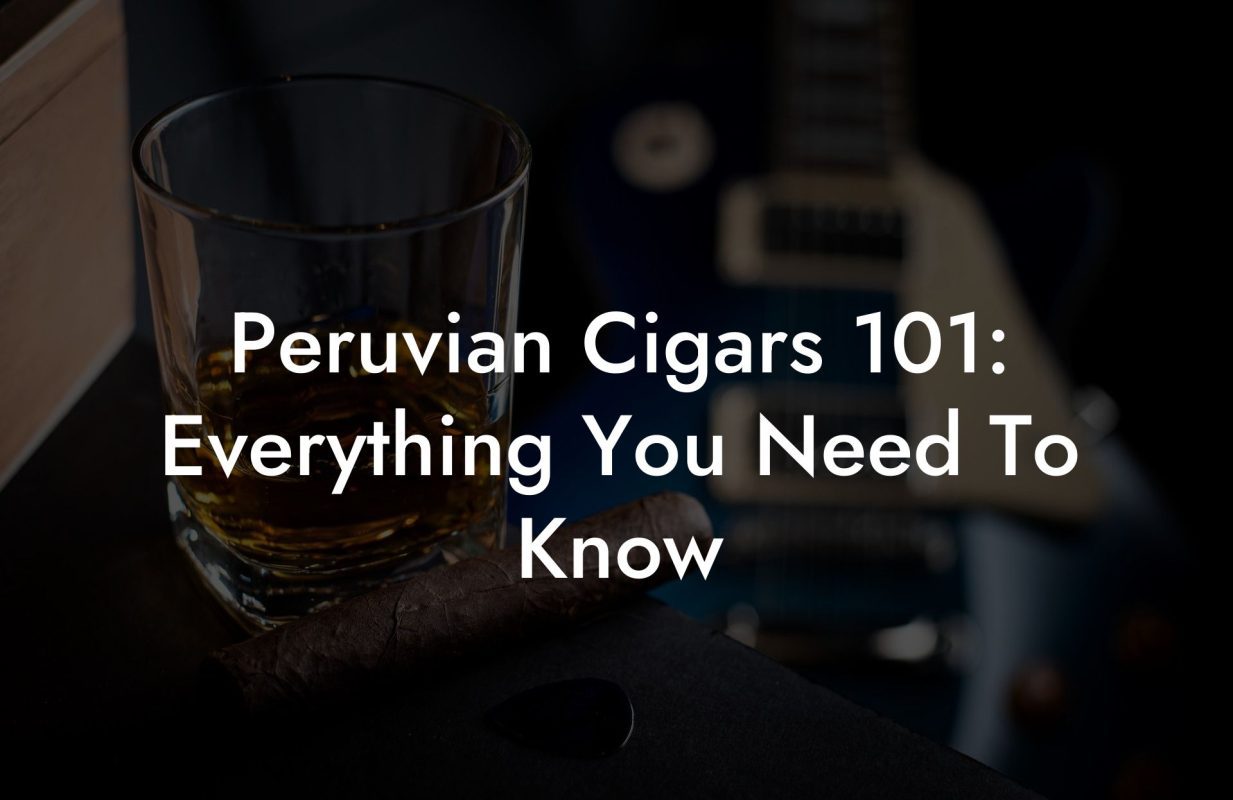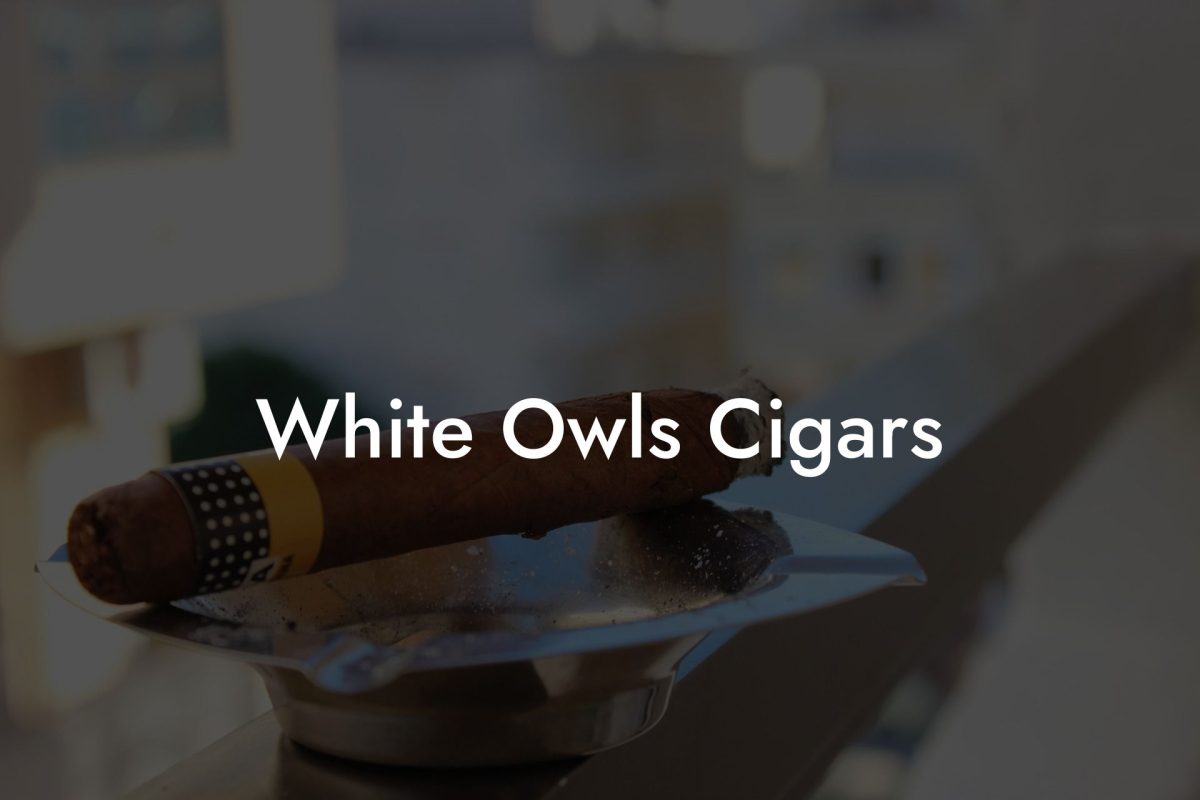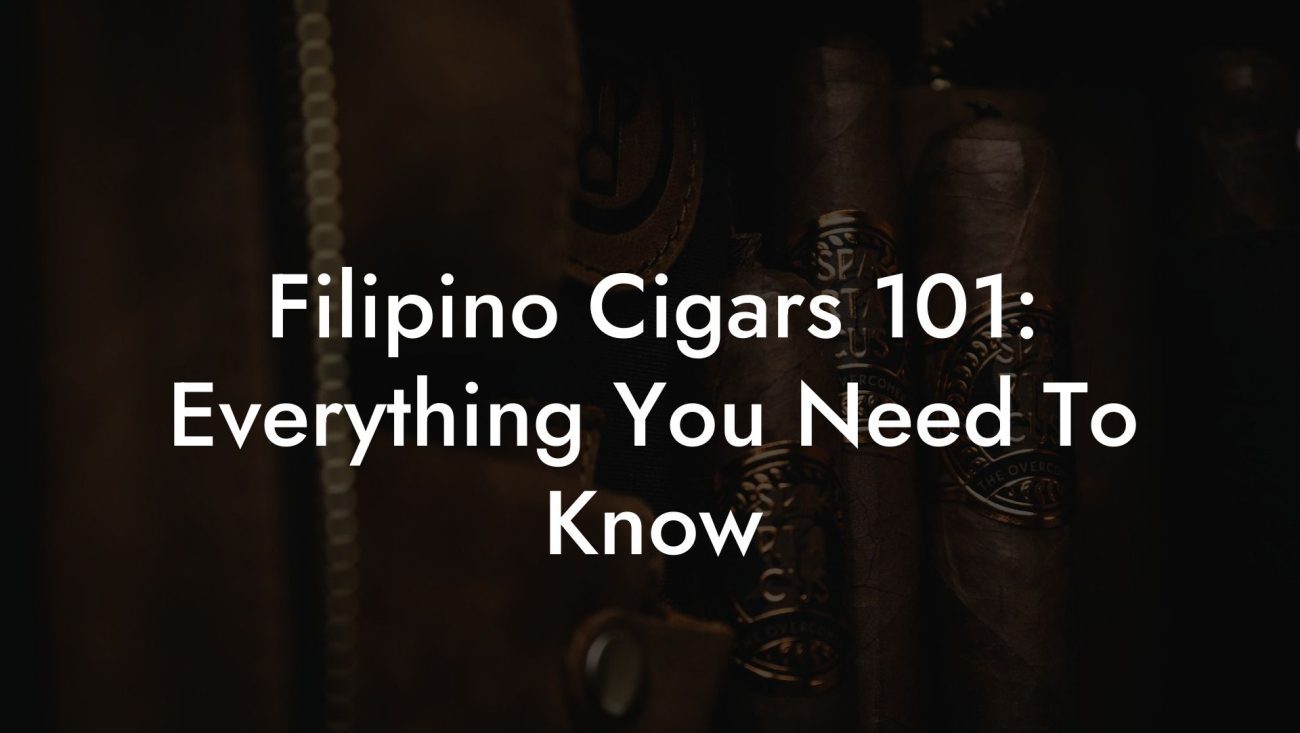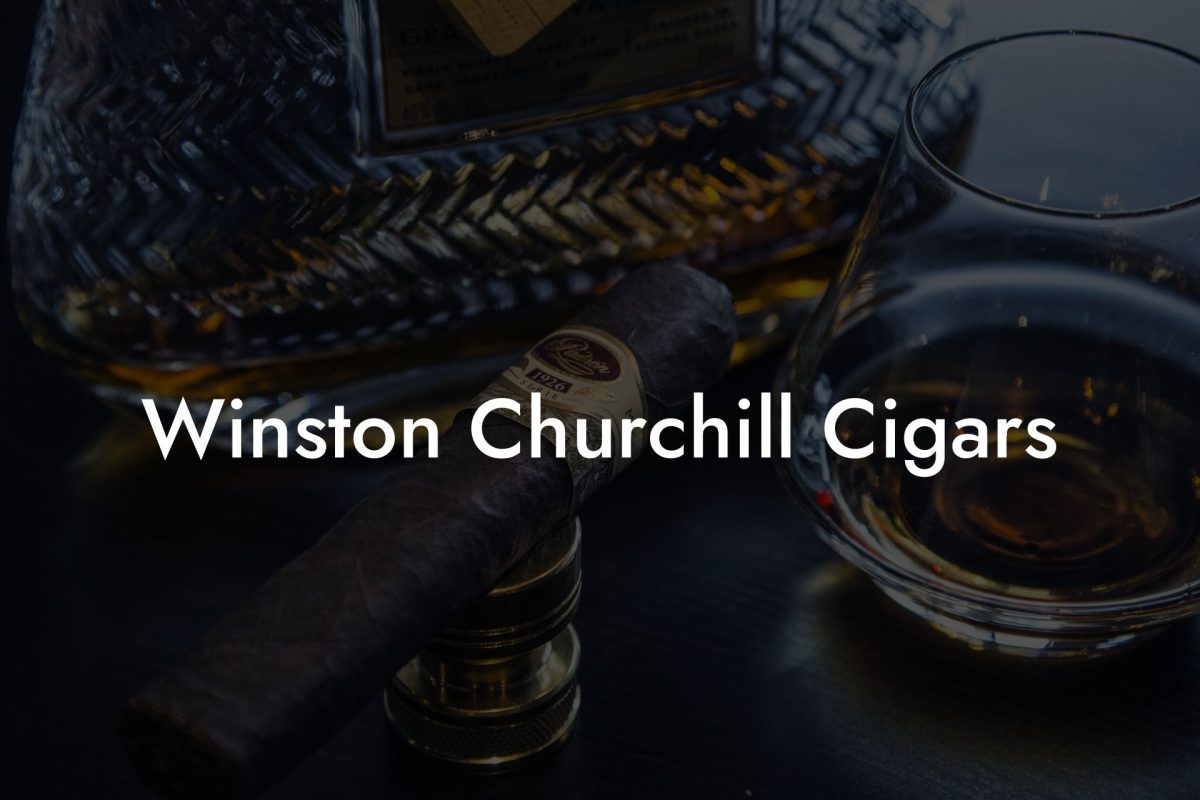Rolling through the intricate world of cigars and FDA regulations is like stepping into a dimly lit speakeasy where tradition meets modern oversight, but with a twist of Gen-Z irreverence. This deep dive into Cigars FDA Regulation isn’t your grandfather’s dusty policy lecture; it’s a vibrant journey through the buzz, the banter, and the battles being waged between lifestyle, industry, and government oversight. So, light up your curiosity (figuratively, of course) and get ready to explore a mosaic of policies, cultural clashes, and economic repercussions that make cigars more than just a leisurely puff.
Cigars Fda Regulation Table of Contents
Understanding Cigars FDA Regulation: The Basics
A Brief History of Cigar Regulation: From Humidor to Hotline
The Anatomy of FDA Policies: What’s Under the Wrapper?
Impact of FDA Regulations on the Cigar Industry
Economic and Cultural Implications of FDA Oversight
Inside the Regulatory Process: How the FDA Shapes Cigar Rules
The Intersection of State and Federal Regulations
Controversies and Criticisms: The Debate Over FDA Intervention
Health and Safety: Balancing Pleasure with Responsibility
Innovations in the Industry: How Regulations Spark Creativity
Cultural Shifts: The Modern Cigar Connoisseur
Resources and Community Support: Your Next Steps
Global Perspectives on Cigar Regulation
Cigars in the Digital Age: Trends, Technology, and Regulation
Legal Challenges and Future Directions
Integrating Consumer Feedback into Regulatory Practices
Integrative and Holistic Approaches FAQs: Your Questions Answered
Your Journey Through Cigars FDA Regulation: Embrace the Future with Confidence
Understanding Cigars FDA Regulation: The Basics
Cigars have long been symbols of sophistication, rebellion, and the good life. Today, they are also at the center of a regulatory revolution spearheaded by the Food and Drug Administration (FDA). This regulation landscape is designed to safeguard public health while balancing the cherished cultural heritage and craft of cigar-making. But what does FDA regulation actually mean for your favorite stogie?
At its core, Cigars FDA Regulation encompasses the guidelines and rules that govern the manufacturing, marketing, sale, and distribution of cigars. Unlike cigarettes, cigars undergo specialized scrutiny given their unique composition and cultural significance. The FDA’s policies cover aspects like ingredient disclosures, product labeling, marketing restrictions, and even the conditions under which cigars are produced and sold. The goal is to ensure that consumers know what’s in their cigars while protecting public health.
If you’re wondering why any regulatory body would target cigars, with their heady blend of tradition and indulgence, it’s all about balancing heritage with health. The FDA’s mandate is to prevent misleading claims, curb youth exposure, and keep the industry on its toes amid shifting public perceptions of tobacco. Essentially, it’s a high-stakes dance between preserving a storied legacy and adapting to modern health standards.
A Brief History of Cigar Regulation: From Humidor to Hotline
To fully appreciate the current state of Cigars FDA Regulation, it helps to take a stroll down memory lane. Cigar consumption and its cultural appeal have evolved dramatically over the decades, from the exclusive cigar lounges of the 1920s to today’s hip, urban cigar bars where trends and traditions collide.
Before the FDA extended its regulatory reach into the tobacco realm, cigars were mostly left to local and state regulations. Local lawmakers often had divergent stances, and the cigar industry thrived in a patchwork of lax oversight. However, as public health concerns escalated, the federal government couldn’t ignore cigars’ role in the broader tobacco narrative. Policies began shifting in the late 20th century, culminating in robust, unified oversight efforts in the 21st century.
Modern regulations are the product of decades of trial, error, and passionate debates among lawmakers, public health advocates, and the cigar community itself. This evolution is a testament to the enduring allure of cigars, where tradition meets technology, and every puff is a nod to history wrapped in modern accountability.
The Anatomy of FDA Policies: What’s Under the Wrapper?
The FDA’s approach to cigars is multifaceted, delving deep into the product’s ingredients, manufacturing processes, marketing strategies, and even packaging. Let’s break down these components:
- Ingredient Transparency: Manufacturers are required to disclose what goes into a cigar, from the tobacco blend to natural additives. The objective is clear, ensure consumers know what they’re smoking.
- Product Labeling and Packaging: Warnings about the risks of tobacco use are mandatory, and the packaging must comply with strict guidelines to avoid misleading imagery and language. Think of it as a modern-day “smoke signal” warning.
- Marketing Restrictions: Creative advertising is great, but not when it targets underage users. The FDA has cracked down on marketing tactics that glamorize cigars by limiting where, how, and to whom cigars are promoted.
- Manufacturing Standards: Just as cigars are crafted with care, manufacturing processes must adhere to rigorous standards that emphasize safety, consistency, and quality control.
- Youth Access Prevention: Retailers must implement verification protocols to ensure that only adults can purchase cigars, effectively reducing youth access and the glamorization of tobacco use.
These pillars of regulation not only safeguard public health but also instill a sense of accountability within an industry that is as much about artistry as it is about indulgence. Balancing the romance of the cigar with the realities of modern health concerns is a tricky business, and the FDA is right in the middle of it.
Impact of FDA Regulations on the Cigar Industry
The ripple effects of FDA regulation have been as robust as a tightly rolled cigar. For the cigar industry, these rules have spurred both challenges and opportunities.
On one hand, adherence to FDA guidelines has introduced stricter quality control measures and increased production costs. Smaller, artisanal cigar makers face new hurdles in funding compliance, while larger corporations grapple with the complexities of reformulating products to meet the latest standards. The need for transparency has redefined product labels and marketing techniques, forcing companies to evolve their business models.
On the other hand, transparent and reliable practices can bolster consumer trust. When buyers know exactly what’s in their cigars and the care with which they’re produced, it fosters a stronger bond between the maker and the aficionado. Many industry leaders have embraced this accountability, positioning themselves as not only purveyors of fine cigars but also as champions of consumer safety.
Moreover, the regulatory landscape has ignited innovation in product development. From organic tobacco farming to novel manufacturing techniques, the quest to meet and exceed FDA standards has sparked creativity and differentiates companies in a crowded market. It’s a classic case of industry adaptation, where necessity becomes the mother of reinvention.
Economic and Cultural Implications of FDA Oversight
Beyond the manufacturing floor and the advertising board, FDA regulation of cigars carries significant economic and cultural weight. For many cigar aficionados, cigars are more than mere tobacco products; they are symbols of cultural identity, relaxation, and even luxury. Striking a delicate balance between regulation and tradition is no small feat.
Economically, tighter regulations can be a double-edged sword. While they may temporarily drive up production costs and reduce profit margins, in the long run, they also raise consumer confidence, a vital ingredient in the survivability of niche products like cigars. When consumers are confident in the quality and safety of a product, they are more likely to invest in premium experiences that include high-quality cigars.
Culturally, the FDA’s role is multifaceted. On one side, some purists argue that excessive regulation dilutes the traditional art of cigar-making, stripping away the mystique of a hand-rolled masterpiece. On the other, a growing demographic of health-conscious millennials and Gen-Zers appreciates the transparency and accountability that the FDA enforces. Herein lies the core of the debate: how to honor a storied legacy while embracing progressive change.
This tug-of-war between reverence for tradition and modern oversight has sparked vibrant discussions in online forums, cigar lounges, and policy debates. It underscores the larger societal shift towards ethical consumerism and transparency in every aspect of our daily indulgences.
Inside the Regulatory Process: How the FDA Shapes Cigar Rules
Navigating the maze of Cigars FDA Regulation can seem as intricate as selecting the perfect humidor for your collection. But behind the scenes, the FDA’s regulatory process is a structured pathway designed to balance stakeholder interests and public health.
The regulatory process typically begins with extensive research and data collection. The FDA consults with public health experts, industry leaders, and academic researchers to understand the nuances of cigar production and consumption. This rigorous study culminates in the drafting of proposed rules, which are then opened up for public comment. This period is vital, it allows industry stakeholders and fans alike to weigh in, ensuring that the final guidelines are both practical and effective.
Once feedback is incorporated, the FDA finalizes the policies, and compliance deadlines are set for manufacturers and retailers. These transitional periods are crucial, giving companies time to adjust their practices, update product information, and train staff on new procedures.
While the process might seem bureaucratic at times, it’s this comprehensive approach that reinforces the integrity and credibility of FDA regulations. With transparency at its core, the process ensures all voices, from cigar aficionados to public health advocates, are heard before any major regulatory shifts take place.
The Intersection of State and Federal Regulations
Although the FDA sets the stage for national tobacco policy, state and local governments often add their own flair to cigar regulation. In many instances, states impose additional restrictions or standards that operate in tandem with federal guidelines.
State-level regulations can include extra measures aimed at ensuring community health, such as higher taxes on tobacco products or stricter zoning laws for cigar shops. In contrast, some states may embrace a more lenient approach to preserve local heritage and support small businesses. The interplay between state and federal rules creates a complex regulatory ecosystem that reflects regional values and economic priorities.
For the cigar industry, this means navigating varying requirements depending on where their products are sold. While it poses challenges, this multi-layered oversight also encourages companies to adopt best practices that meet or exceed both federal and state standards. It’s a dynamic fusion of localized tradition and broad-spectrum accountability.
Moreover, this regulatory mosaic fosters rich regional cultures around cigar consumption. Whether it’s a humid, laid-back coastal town with boutique cigar bars or a bustling urban center with high-end lounges, state-specific rules help shape the unique economic and cultural fabric of each community.
Controversies and Criticisms: The Debate Over FDA Intervention
No topic is without its heated debates, and Cigars FDA Regulation is no exception. Critics argue that extensive regulation stifles innovation and undermines the artisanal nature of cigar-making. Some industry insiders warn that overly stringent rules could push small, independent manufacturers out of the market, giving way to big tobacco conglomerates that can more easily absorb regulatory costs.
On the flip side, health advocates and public policy experts champion these regulations as necessary safeguards against misleading marketing, harmful additives, and youth-targeted promotions. The FDA’s proactive steps to raise consumer awareness and ensure product safety are viewed as essential measures that help prevent long-term health issues.
This polemic is further enriched by cultural debates surrounding personal freedom and responsibility. Some cigar enthusiasts lament that too much regulation strips away the romance and mystique of traditional cigar culture, arguing that informed adults should have the right to make their own choices. Others contend that transparency and responsible marketing are non-negotiable in an era of heightened awareness about health risks.
Whether you side with the purists or the progressives, the ongoing dialogue is a clear indicator of the complex role cigars play in modern society, where tradition, health, and individual rights are constantly renegotiated.
Health and Safety: Balancing Pleasure with Responsibility
At the heart of FDA regulation lies a commitment to public health and safety. While indulging in a well-crafted cigar can be a pleasurable experience, it’s important to understand the potential risks associated with tobacco use. The FDA’s stringent guidelines are designed to ensure that consumers are fully informed about what they are inhaling, and that manufacturers adhere to safe, quality standards.
Cigars, by their nature, carry health risks that are intrinsic to all tobacco products. However, with enhanced labeling requirements, clearer warnings, and rigorous testing protocols, the FDA aims to minimize these risks by fostering an environment of transparency. The inclusion of warning labels on cigar packaging, for instance, serves as a constant reminder that enjoyment should be tempered with caution.
Additionally, regulations on advertising and marketing practices play a pivotal role in reducing the likelihood that young people will take up smoking. With the rise of social media and influencer culture, regulators are increasingly vigilant about how cigars are portrayed, especially in ways that might glamorize their use to impressionable audiences.
Ultimately, the goal is not to demonize cigars but to promote responsible enjoyment. The FDA’s approach acknowledges that while cigars can be a symbol of luxury and heritage, they must be consumed with full knowledge of the associated risks.
Innovations in the Industry: How Regulations Spark Creativity
It might seem counterintuitive, but regulations often serve as a catalyst for innovation. In the cigar industry, FDA mandates have forced manufacturers to reconsider traditional ingredients, adopt cutting-edge quality control technologies, and even reimagine the very process of cigar production.
For example, artisanal cigar makers are now exploring organic and sustainable farming practices to meet consumer demand for ethically produced products. Cutting-edge technologies, such as advanced moisture control systems and real-time quality monitoring, have resulted in consistently high standards that benefit both the industry and its consumers.
Moreover, the focus on transparency has led to creative marketing strategies that emphasize the heritage and craftsmanship of cigar making. Rather than relying on vague, romanticized descriptions, brands are now investing in behind-the-scenes content, detailed product origin stories, and interactive digital experiences that draw in younger, tech-savvy audiences.
This blend of tradition and innovation is exactly what makes the cigar scene so dynamic today. It’s a reminder that while regulations may set boundaries, they also pave the way for creative solutions that respect the past while embracing the future.
Cultural Shifts: The Modern Cigar Connoisseur
The days of the stereotypical, dusty cigar lounge are fading, and quickly giving way to vibrant, multi-cultural spaces where cigars are embraced as vehicles of self-expression and community. Modern cigar aficionados are not just older gentlemen in tailored suits; they are young professionals and creatives who see cigar culture as an extension of their personal brand.
This cultural shift has led to a reimagining of what it means to enjoy cigars in the 21st century. Social media platforms, podcasts, and live events have provided new venues for enthusiasts to gather, share experiences, and even debate the finer points of FDA regulation. In many ways, these discussions are as much about identity as they are about tobacco policy.
As younger consumers demand more transparency, ethical production, and quality assurance, the regulatory framework around cigars is gradually aligning with modern expectations. It’s a transformation that speaks to a broader trend of mindful consumption, a movement where heritage, sustainability, and informed choices go hand in hand.
Resources and Community Support: Your Next Steps
Navigating the complex realm of Cigars FDA Regulation can feel a bit like trying to decipher an ancient treasure map, there are hidden gems of knowledge everywhere, you just need to know where to look. Whether you’re a seasoned aficionado, a curious newcomer, or an industry insider, there are plenty of resources available to help you stay informed about the latest regulatory trends.
Start by following reputable sources such as the FDA’s official website, trusted tobacco industry publications, and consumer advocacy groups dedicated to public health. Many professional associations in the cigar world offer webinars, discussion panels, and research publications that provide valuable insights into how regulations are evolving.
Additionally, consider joining online communities and forums where fellow cigar enthusiasts discuss everything from the best rolling techniques to how to interpret new FDA guidelines. Social media groups and dedicated apps can keep you updated on the latest debates, product reviews, and policy changes, all in real time.
Remember, informed consumers are empowered consumers. By staying connected, you not only safeguard your own interests but also contribute to a broader dialogue that shapes the future of cigar culture. Whether you’re curating a private collection or hosting a cigar tasting event, these resources and communities can provide guidance, support, and a sense of belonging in an ever-evolving regulatory landscape.
Global Perspectives on Cigar Regulation
While the FDA’s oversight reigns supreme in the United States, cigar regulation is a global affair. Countries around the world have developed their own regulatory frameworks that often reflect cultural, economic, and public health priorities. For instance, European nations might focus more on environmental sustainability and artisanal traditions, while parts of Asia could emphasize strict licensing and quality control.
These international perspectives highlight that while cigars are universally admired, the regulatory challenges they face differ based on local contexts. Multinational cigar companies must navigate a labyrinth of rules that vary from one country to the next, forcing them to adopt flexible strategies that respect diverse legal landscapes.
The global interplay of standards not only influences production but also impacts consumer perception and marketing. International collaborations and trade agreements play a role in shaping the regulatory environment, ensuring that cigars remain a dynamic product embraced by cultures far and wide.
Whether you’re savoring a Cuban cigar in a vibrant Latin American barrio or enjoying an Italian-made stogie in a bustling European city, the global narrative of cigar regulation is a testament to the universal love for this timeless indulgence.
Cigars in the Digital Age: Trends, Technology, and Regulation
The digital revolution hasn’t left the cigar world untouched. Social media influencers, virtual tasting sessions, and e-commerce platforms have breathed new life into cigar marketing, and consequently, FDA regulations. With everything available at your fingertips, the way cigars are promoted, reviewed, and sold has undergone a radical makeover.
Digital platforms provide an unprecedented level of transparency, but they also present challenges for regulators. Online advertising and influencer collaborations can easily cross ethical lines, especially when they target younger demographics. The FDA is working diligently to adapt existing regulations to this rapidly evolving digital landscape, ensuring that traditional marketing boundaries are upheld even in virtual spaces.
For brands, mastering the art of digital storytelling is key. Authenticity, detailed product histories, and virtual tours of boutique factories are just a few examples of how companies are using technology to connect with modern consumers. At the same time, robust online security measures and age verification systems have become indispensable to align with regulatory mandates.
As the digital frontier expands, both regulators and the industry must remain agile, continuously updating strategies to meet the unique demands of the online marketplace while preserving the rich heritage of cigar culture.
Legal Challenges and Future Directions
Like any evolving industry, the regulation of cigars is not without its legal challenges. Court battles, legislative amendments, and industry lawsuits frequently punctuate the regulatory landscape, illustrating the contentious nature of federal intervention in a centuries-old tradition.
Legal debates often focus on the balance between consumer rights and public health imperatives. Some argue that overly stringent regulations infringe upon personal freedoms, while others maintain that clear, enforceable guidelines are essential to prevent misleading practices and protect vulnerable populations. These legal challenges not only shape current policies but also pave the way for future adjustments.
Looking ahead, anticipate more collaborative efforts among industry groups, public health advocates, and regulators to refine current rules. Advances in technology, shifting consumer habits, and evolving public health data will undoubtedly influence the conversation around cigars and FDA oversight. The industry’s future hinges on its ability to innovate within the confines of these regulations while preserving the cultural essence that makes cigars truly unique.
In essence, legal challenges are both a barrier and a catalyst for progress, fueling ongoing discussions that will define the next chapter of cigar regulation in a rapidly changing world.
Integrating Consumer Feedback into Regulatory Practices
One of the most innovative aspects of modern regulatory practice is the active incorporation of consumer and industry feedback into policy-making processes. With social media and online forums providing a platform for direct dialogue, the FDA’s approach to cigar regulation is increasingly dynamic and responsive.
Through public comment periods, focus groups, and expert panels, stakeholders can voice concerns, share data, and propose innovative solutions that better balance health imperatives with cultural values. This iterative process not only improves the efficacy of regulations but also fosters trust between regulators and the communities they serve.
For consumers, it means that your opinions matter, every comment submitted and every discussion held online is contributing to a regulatory framework that reflects real-world experiences. For the industry, it offers a chance to shape policies that support innovation and sustainability while meeting public health goals. This collaborative spirit proves that when regulators and consumers work together, the end result is a safer, more transparent marketplace.
As we move deeper into the digital age, this feedback loop will only become more integral to developing a balanced, forward-thinking approach to Cigars FDA Regulation.
Integrative and Holistic Approaches FAQs: Your Questions Answered
To clear up some of the most common questions swirling around Cigars FDA Regulation, here are answers to key queries that many enthusiasts and industry insiders have:
1. What exactly does the FDA regulate when it comes to cigars?
The FDA regulates cigars by ensuring transparency in ingredients, enforcing strict labeling and packaging standards, implementing tight marketing restrictions, and overseeing manufacturing practices to promote public health.
2. How do these regulations affect the quality and cost of cigars?
While compliance can drive up production costs, it also ensures consistent quality and transparency, which in turn builds trust with consumers who value high standards and clear product information.
3. Will FDA regulations change how cigars are marketed online?
Yes, the FDA is adapting its guidelines to address digital marketing practices, ensuring that online promotions do not target underage audiences and maintain transparency in product messaging.
4. Are there special rules to prevent youth from accessing cigars?
Absolutely. Strict age verification methods and marketing restrictions are in place to minimize youth exposure and discourage underage purchases.
5. How do state regulations differ from federal guidelines?
While the FDA establishes national standards, state and local governments may impose additional restrictions that address local health priorities and cultural considerations.
6. What impact do these regulations have on small, artisanal cigar makers?
Smaller manufacturers often face challenges due to higher compliance costs, but many are adapting by embracing innovation and emphasizing artisanal craftsmanship to differentiate their products.
7. Can consumers expect safer products as a result of these regulations?
Yes, improved transparency and standardized manufacturing practices are intended to ensure that products are safer and consumers are better informed about what they are using.
8. How does FDA regulation help protect public health?
The regulations aim to reduce misleading advertising, improve ingredient disclosure, and prevent youth-targeted marketing, thereby fostering an environment where consumers can make more informed, healthier choices.
9. What are the future trends in cigar regulation?
Expect a continued emphasis on digital advertising standards, enhanced product transparency, and more collaborative policy-making that includes both industry voices and consumer feedback.
10. Where can I find the latest FDA updates on cigar regulations?
The FDA’s official website, industry publications, and public health advocacy groups are the best sources for staying current with evolving regulations.
Your Journey Through Cigars FDA Regulation: Embrace the Future with Confidence
Delving into the world of Cigars FDA Regulation is more than just unpacking legal jargon, it’s about embracing a new era where tradition meets transparency, and careful craftsmanship coexists with modern safety standards. Whether you’re a longtime aficionado or a newcomer eager to learn how your favorite leisure activity is governed, understanding these regulations empowers you to make informed choices.
As you navigate this dynamic landscape, remember that every regulation, every guideline, is designed to protect you while preserving the art and heritage of cigar-making. From ingredient disclosures to digital marketing reforms, the evolving rules are a testament to a broader shift toward accountability and ethical production.
In this journey, you are not merely a consumer, you are an informed participant in a vibrant dialogue about health, culture, and innovation. So, next time you appreciate the aroma of a finely crafted cigar, take a moment to reflect on the journey that has brought us to this modern intersection of tradition and regulation.
With your newfound knowledge, step into the world of cigars with confidence. Embrace the evolving narrative and join the community of informed enthusiasts who are shaping the future of cigar culture, one puff at a time.

